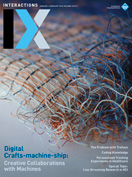Authors:
Gordon Baxter
I've always been a voracious reader, and I'm currently on target to read at least one book a week this year. I usually have three or four books on the go simultaneously—generally a novel, a biography, another nonfiction book, and sometimes a volume of poetry.
As a fan of the Sicilian detective Salvo Montalbano, I was saddened by Andrea Camilleri's recent passing. I discovered the series when searching for Italian crime fiction, which initially led me to the Gialli genre, with their yellow covers, and then to Camilleri. He was 68 when he published the first Montalbano book; they all have the same number of chapters, each of the same length. Perhaps that's part of why they are so easy to read, and why they are such page-turners.

The plotline for The Pyramid of Mud, the 22nd book in the series, revolves around corruption and infighting within the construction industry. Montalbano fans will be pleased to hear that it contains many of the elements they have come to know and love about the books. Montalbano is a flawed character, which makes him more human, but he is brilliant at reading people, and at solving problems, viz., catching criminals, with the help of his team. I'll definitely be investing in the remaining books; Camilleri sent his publisher the final one some time ago, for posthumous release.

In addition to reading, music is one of my other great passions, and I first encountered music producer Joe Boyd in the early 1980s through his Hannibal record label of world music. Boyd's autobiographical White Bicycles finally reached the top of my reading pile this year. It paints a captivating picture of the music industry in the 1960s and early '70s, a time of great upheaval as folk collided with rock. Boyd wound up working with many important folk and rock artists, including the late, great Nick Drake. It was Boyd's inspired idea to add orchestration to Drake's music; Drake preferred a simpler sound. Boyd had the knack of seeing and hearing things that other people couldn't.

Recently, I've found myself reading an increasing number of natural history and environmental books. I've become fascinated by bees—around a third of our food is dependent on them—so I can completely empathize with Helen Jukes's quest in the sublime A Honeybee Heart Has Five Openings. It relates how an initial interest can quickly become an (almost) all-consuming passion. Happily, all her hard work and research bears fruit once she gets her handmade top-bar hive and her colony of bees starts producing honey. It's an absorbing story, providing real insight into the history and science of beekeeping and some of its main characters, as well as serving as a personal tale of self-discovery.
While none of these books is about HCI, they all offer useful, transferable lessons. Camilleri constantly reminds us about the variability of human behavior as well as the need for pragmatism when solving problems. Boyd reminds us to keep our eyes, ears, and minds open when interacting with the world. And finally, Jukes prompts us not to ignore history, and to consider the wider consequences of our actions, which can extend way beyond the interfaces we design.
Gordon Baxter is an independent human factors and UX consultant, and co-author of Foundations for Designing User-Centered Systems (Springer 2014). [email protected]
Copyright held by author
The Digital Library is published by the Association for Computing Machinery. Copyright © 2020 ACM, Inc.








Post Comment
No Comments Found